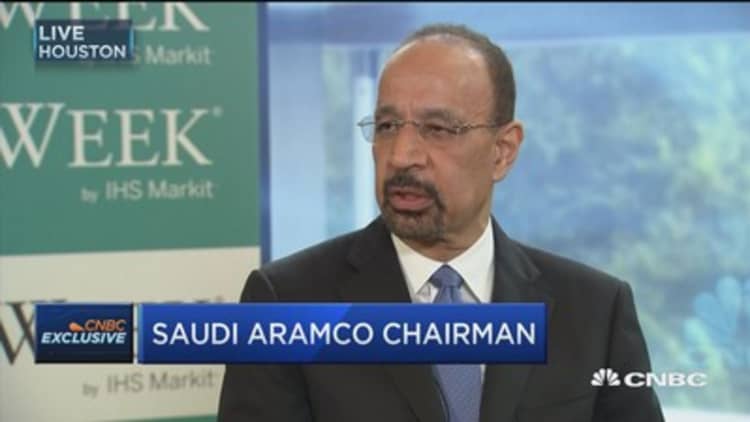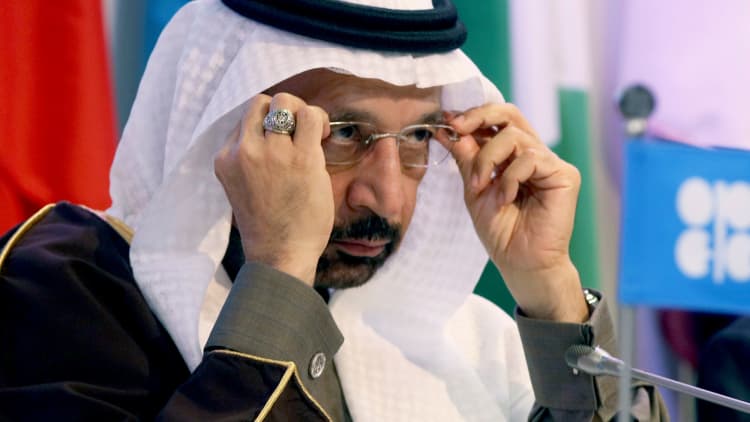
Crude market sentiment is under pressure as OPEC sends mixed messages about its deal to cut oil output, according to Helima Croft, global head of commodity strategy at RBC Capital Markets.
The Organization of the Petroleum Exporting Countries reached a historic accord with 11 other exporters late last year to reduce total production by 1.8 million barrels a day in a bid to reduce brimming stockpiles of crude.
That lifted oil prices firmly above $50 a barrel until last week, when the cartel's united front began to fracture at CERAWeek by IHS Markit, one of the world's most closely watched energy industry conferences, Croft said on Monday.
"What had been sort of working against the sell-off had been OPEC having very strong message discipline. For most of the year, they just kept coming out and saying, 'We've got this. Compliance is great,' and then it starts to break down at CERAWeek," she told CNBC's "Power Lunch" on Monday.
Top OPEC exporter Saudi Arabia once vowed to defend the accord at any cost, but the kingdom's oil minister expressed disappointment in Russia's output cuts at CERAWeek and warned that Riyadh would not underwrite other countries' investments at its own expense.

The Saudis have delivered the lion's share of cuts, while Iraq, Russia and some other producers have pumped above their quotas. Saudi Energy Minister Khalid Al-Falih suggested at CERAWeek that extending the deal by another six months may depend on participants' compliance in the first half of this year, Croft noted.
This comes as U.S. drillers, particularly in the southern Permian Basin, have increased production, pushing the country's crude stockpiles to record highs and upsetting OPEC's plans to reduce global inventories.
"I think the Saudis always knew the Permian would be a problem, but you can't have the Permian and not have everybody else in OPEC and non-OPEC that agreed to cut not do their part," she said.
"So now we have some wavering on the Saudi side, which makes it a bit of a perfect storm right now ... for sentiment," Croft said.

Complicating matters, Iraq's oil minister said Tuesday at CERAWeek that Baghdad could raise output in the second half of 2017 to 5 million barrels a day. That raised red flags because Iraq has committed to cutting production to 4.35 million barrels per day for the first six months of 2017.
Iraq produced nearly 4.47 million barrels a day in January, according to secondary sources cited by OPEC. Platts projects its output remained 91,000 barrels a day above its quota in February.
There is "no way" OPEC would allow Iraq to increase production by 500,000 barrels a day in the middle of coordinated production cuts, Croft said. That said, Iraq has staged a remarkable comeback in oil production despite waging a war against ISIS militants, she added.
While the OPEC disunity is weighing on markets, fundamentals are not as bad as they seem, according to Croft. U.S. crude stockpiles remain at record highs, but Japanese and European inventory levels are moderating, she noted.


